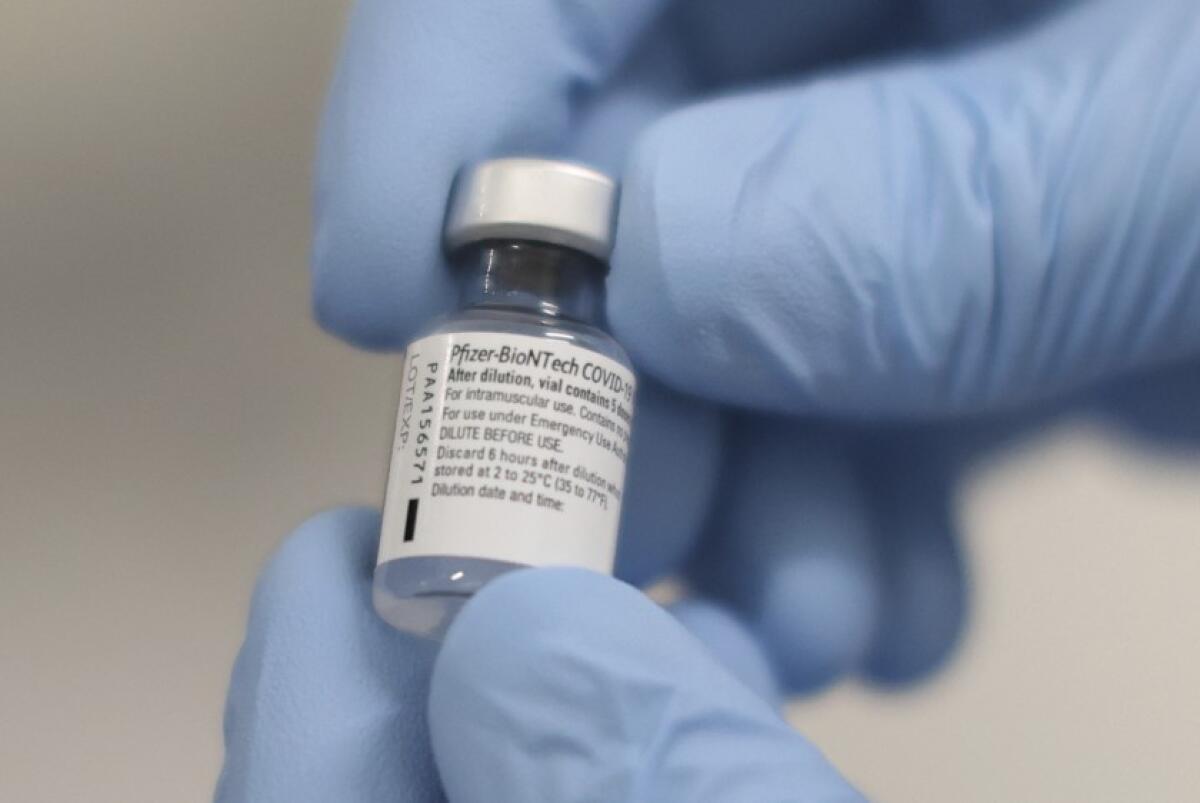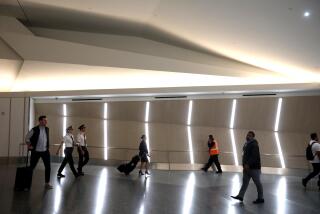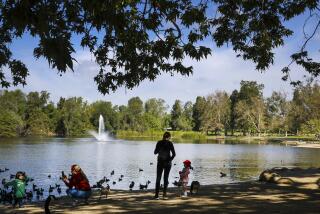San Diego will be part of national clinical trial on COVID-19 vaccines

- Share via
SAN DIEGO — Fully vaccinated and boosted San Diego County residents are among those nationwide who will be able to participate in a new clinical trial that seeks to test combinations of vaccines that target variants, including Beta, Delta and Omicron.
UC San Diego is among 24 sites nationwide selected to enroll otherwise healthy residents in the COVID-19 Variant Immunologic Landscape Trial, a major nationwide effort funded by the National Institute of Allergy and Infectious Diseases. Called COVAIL for short, the investigation initially plans to enroll about 600 participants into six different randomly selected groups, each of which will receive a different combination of vaccines developed by pharmaceutical giant Moderna.
To date, the only vaccines approved for general use are those focused on the initial strain that emerged in Wuhan, China, in 2019. As the virus has mutated, causing additional waves of infection, companies have worked to update their initial offerings, retargeting the same mRNA technology on new features appearing in the coronavirus’s latest versions.
The idea that drives the trial, explained Dr. Susan Little, a professor of medicine at UCSD and principal investigator of the local trial site, is to map the immune system responses to different variants, populating computer models with enough information to make the best predictions about which combinations would produce the strongest protection against coronavirus’s next successful mutation.
“When a new variant comes along, whatever it is, we want to have an immune response that matches as closely as possible,” Little said.
Initially set for 600 participants, the research effort will expand to 1,500 as additional variant vaccines are ready for testing.
Participants must be at least 18 years old and fully vaccinated with evidence that they have already received a booster shot. According to the county health department’s latest update, about 1.2 million residents across the region have received their boosters, making them eligible to participate if they are in good health.
Enrollment will be targeted toward specific age groups, with the study skewing toward the older age groups that are at significantly greater risk of severe consequences if they get infected. About 45% of COVAIL participants will be age 65 or older.
Investigators also want to better understand how a previous coronavirus infection affects the immune response elicited by vaccines, so 35% will have confirmed previous infections.
More information is available at www.covidvaccinesd.com or by calling (619) 695-4371.
San Diego’s weekly coronavirus update, published weekly, continues to show that the local pandemic is in something of a steady state. There were 125 people with confirmed or suspected COVID-19 cases in local non-military hospitals Tuesday, a number that, although much lower than it was in January, remains stubbornly above 100 even as the number of new cases reported daily remains greater than 200.
Many have recently turned to the amount of virus detected in local wastewater as a better indicator of the pandemic’s current state. The most recent update from San Diego’s SEARCH coalition, a group of local organizations led by UCSD, shows evidence of 2.2 million viruses per liter in samplings made in Point Loma on March 29. That number is up only slightly from the 2.1 million viruses per liter detected March 21, though more recent information from the first week of April had not yet been posted as of 6 p.m. Wednesday.
More to Read
Sign up for Essential California
The most important California stories and recommendations in your inbox every morning.
You may occasionally receive promotional content from the Los Angeles Times.











